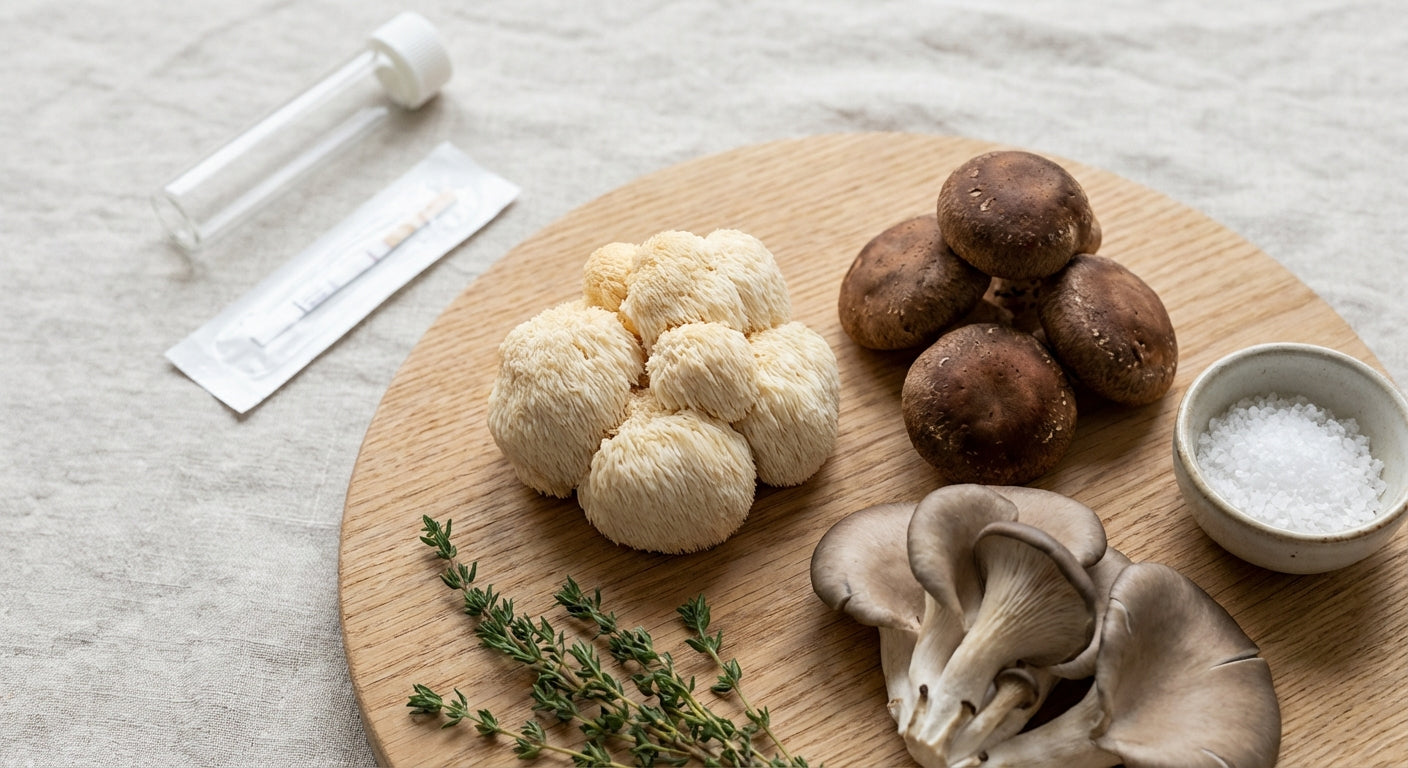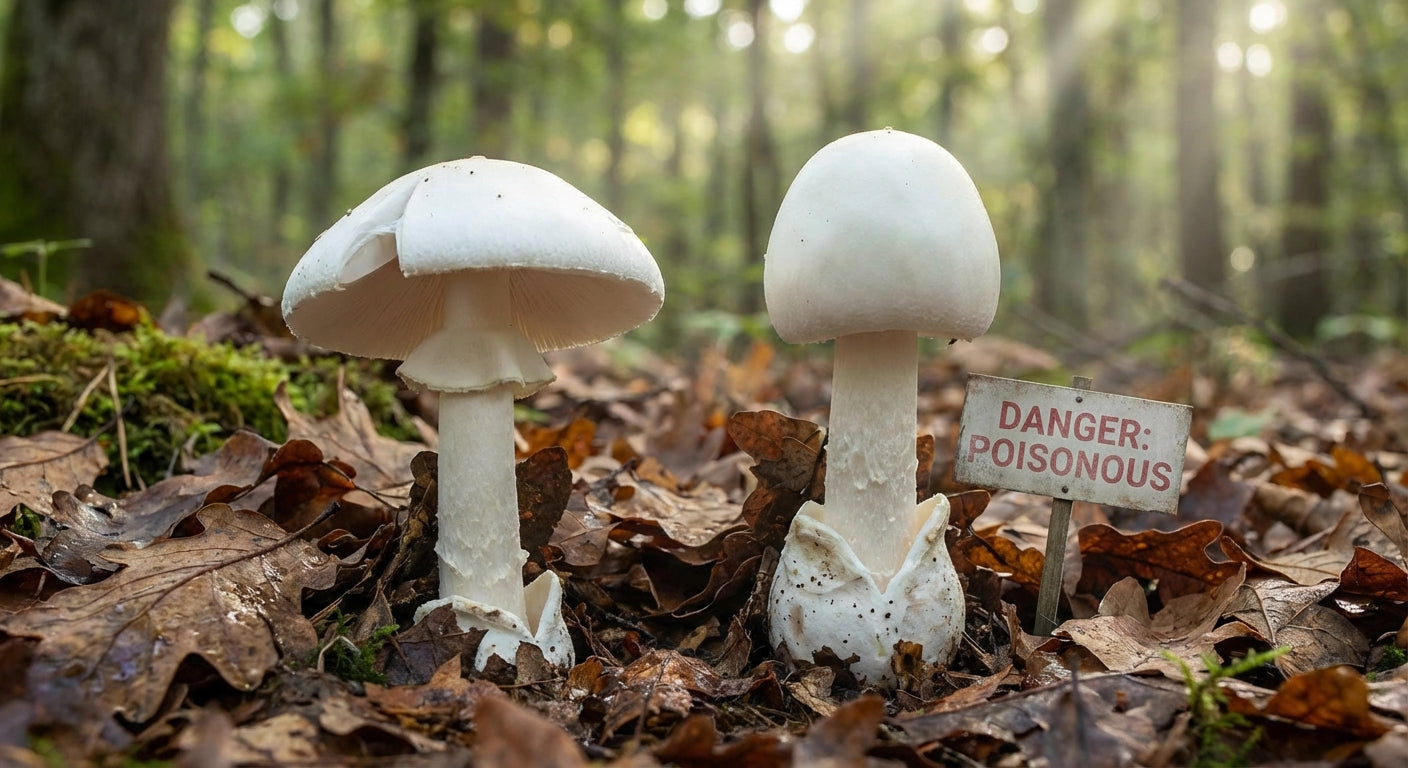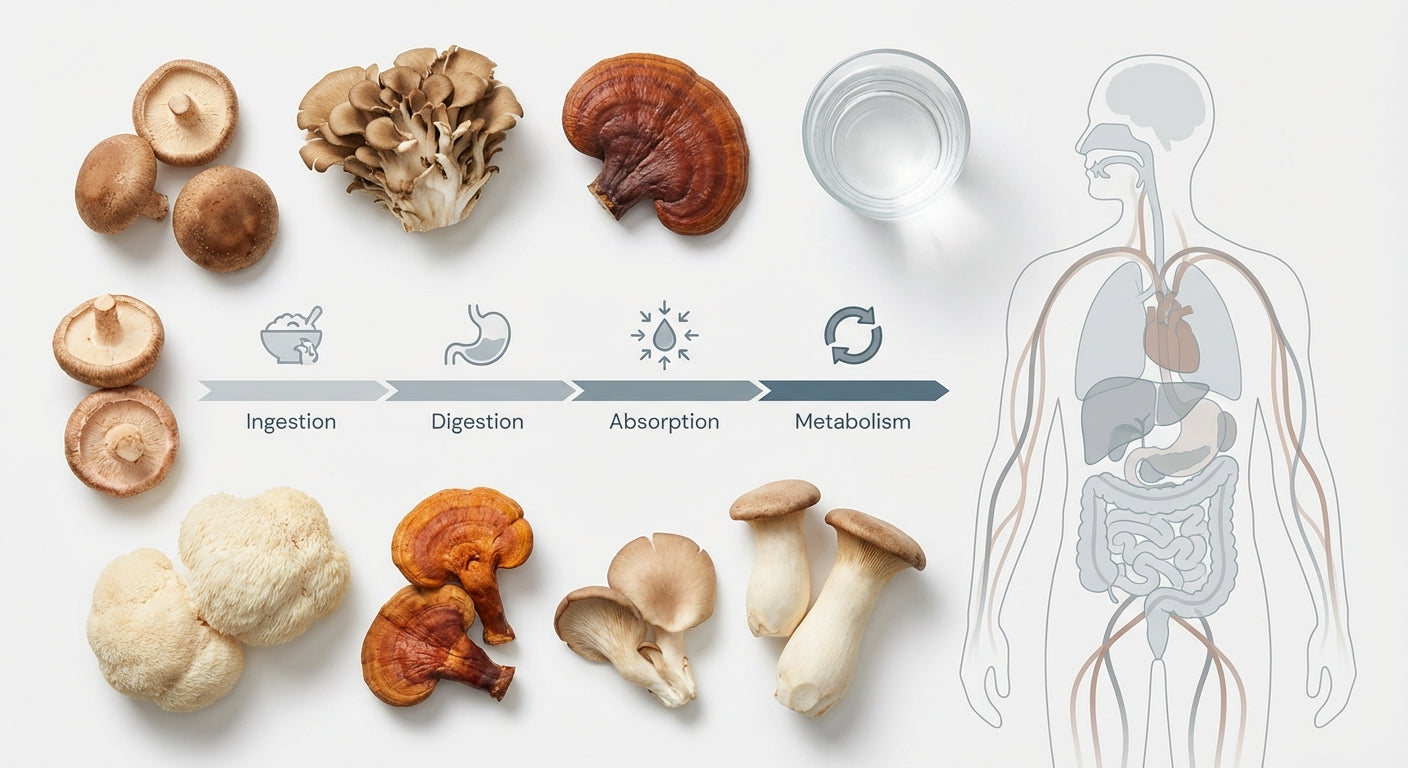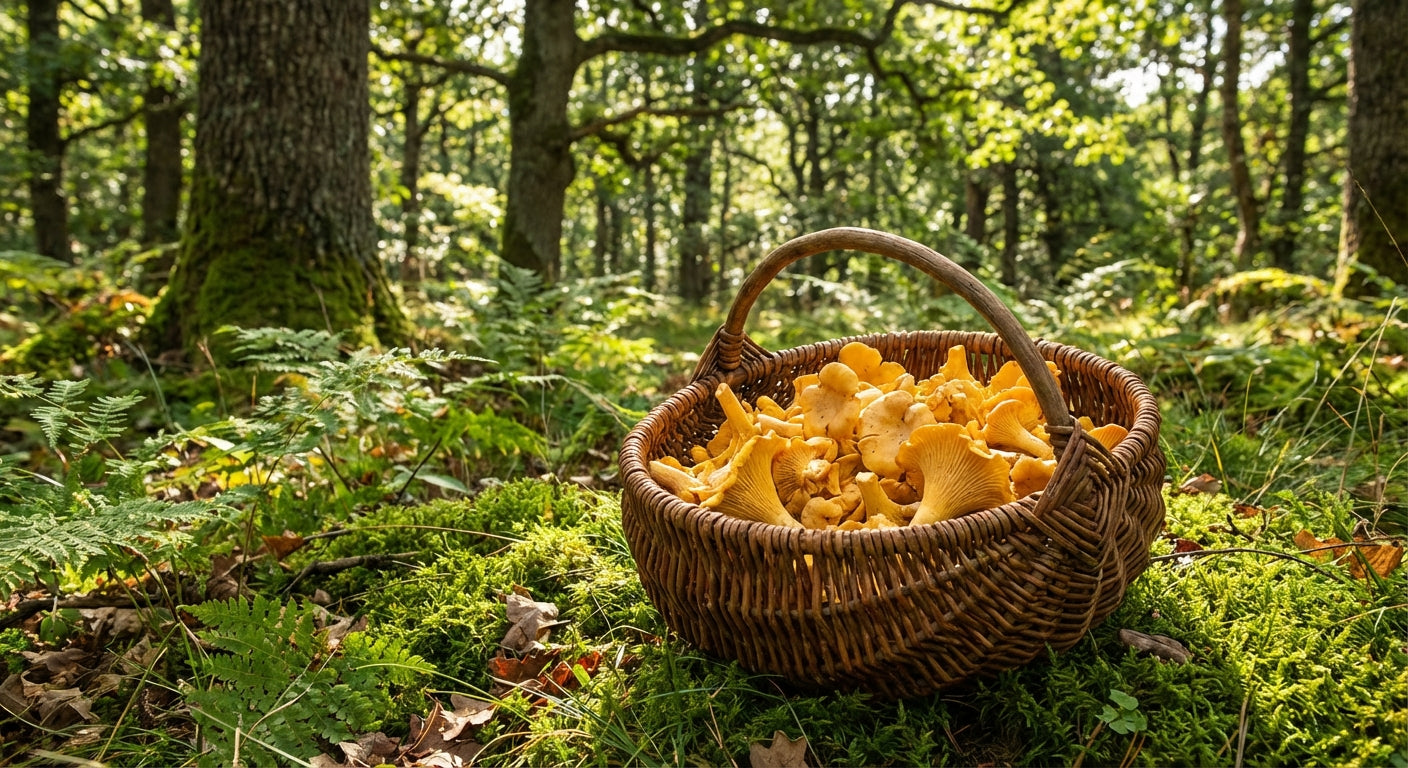Reishi mushroom, scientifically known as Ganoderma lucidum, has earned the prestigious title "King of Herbs" in traditional Eastern medicine for its remarkable health-promoting properties. This glossy, reddish-brown fungus has been revered for over 4,000 years for its potential to enhance longevity, boost immunity, and support overall wellness. Modern scientific research continues to uncover the fascinating reishi mushroom effects that have made it one of the most studied medicinal fungi in the world.
Understanding Reishi Mushroom: The Foundation of Its Effects
Reishi mushrooms contain over 400 different bioactive compounds, including beta-glucans, triterpenoids, polysaccharides, peptides, amino acids, and various minerals. These complex compounds work synergistically to produce the wide range of reishi mushroom effects documented in both traditional use and contemporary research.
The mushroom's bitter taste comes from its high concentration of triterpenes, particularly ganoderic acids, which contribute significantly to its therapeutic properties. Beta-glucans and triterpenoids are the primary compounds responsible for reishi's ability to lower blood sugar and blood pressure levels, potentially reducing diabetes and heart disease risk.
Primary Reishi Mushroom Effects on Immune System Function
Immune System Modulation and Enhancement
One of the most well-documented reishi mushroom effects involves immune system support. Test-tube studies have shown that reishi can affect genes in white blood cells, which are critical components of the immune system, and some forms may alter inflammation pathways in white blood cells.
Beta-glucans in reishi mushrooms can modulate the immune system, and while they are sometimes promoted as immune-boosting, substantial evidence in human studies remains limited. However, animal studies have shown promising results, with a 2023 study from Bangladesh finding that adding dietary reishi mushroom as a beta-glucan source significantly boosted immune responses in fish.
Anti-Inflammatory and Antioxidant Properties
Reishi mushrooms contain potent anti-inflammatory substances and antioxidants that help protect cellular health and overall wellness. These compounds work to combat oxidative stress, which occurs when free radicals outnumber antioxidants in the body, potentially leading to chronic health conditions over time.
The anti-inflammatory effects allow the immune system to function more effectively by reducing unnecessary inflammatory responses and focusing on defending against genuine threats. By strengthening the immune system, reishi mushrooms help fight off bacterial, viral, and fungal infections before they can cause illness.
Reishi Mushroom Effects on Cancer Support and Recovery
Complementary Cancer Treatment Benefits
Research into reishi mushroom effects on cancer has shown promising results when used alongside conventional treatments. A 2016 review indicated that reishi mushrooms could benefit people with cancer when used alongside traditional treatment by increasing white blood cell activity and improving quality of life.
The powerful anti-inflammatory properties of reishi mushrooms—including antioxidants, beta-glucans, polysaccharides, and amino acids—have all been found to have antitumor properties. Multiple studies suggest that some varieties of Ganoderma lucidum carry promising anticancer and immunomodulatory properties.
Patient-Reported Symptom Improvements
Recent research provides compelling evidence of reishi mushroom effects on cancer-related symptoms. A cross-sectional survey of 1,374 cancer patients found that more than half reported significant improvements in nausea (55%), fatigue (52%), poor appetite (51%), and depression (50%) after taking reishi.
A 2024 study in people with cancer found that taking reishi mushroom products helped reduce fatigue, anxiety, and depression. These findings suggest that reishi mushroom effects extend beyond physical symptoms to include mental and emotional well-being.

Fatigue Reduction and Energy Enhancement Effects
Chronic Fatigue Syndrome Support
Studies show that reishi mushrooms may reduce the severity of chronic fatigue, an effect that may be due to the mushrooms' ability to boost the immune system and fight free radical damage. For individuals suffering from conditions that cause high levels of fatigue, such as chronic fatigue syndrome, reishi offers a natural energy alternative.
According to a 2024 review, one study found that polysaccharides in reishi mushrooms may help decrease fatigue after exercising. This suggests that reishi mushroom effects on energy levels may benefit both chronic conditions and general physical performance.
Hormonal Balance and Energy Regulation
Reishi mushrooms can help regulate the body's testosterone levels, which promotes good energy levels. This hormonal balancing effect contributes to the overall energy-enhancing properties of reishi, making it particularly valuable for individuals experiencing hormone-related fatigue.
Mental Health and Mood-Related Reishi Mushroom Effects
Depression and Anxiety Relief
Reishi mushrooms may improve mood, depressive symptoms, and anxiety by helping the body and mind adapt to stress and stressful situations. This adaptogenic quality makes reishi particularly valuable for managing modern stress-related mental health challenges.
Research has specifically examined reishi mushroom effects on chronic pain conditions with mental health components. A 2020 study examined reishi's effects on people with fibromyalgia, finding that the mushrooms were helpful in managing symptoms including pain, depression, and overall quality of life.
Stress Adaptation and Resilience
The adaptogenic properties of reishi mushrooms contribute to their mood-stabilizing effects. In a double-blind, randomized placebo trial, participants given 6 grams daily of micro-milled reishi mushroom for six weeks showed improvements in happiness, depression, satisfaction with life, and health-related quality of life.

Cardiovascular and Metabolic Reishi Mushroom Effects
Blood Sugar and Diabetes Management
Clinical studies indicate reishi's benefits in exerting mild antidiabetic effects and improving dyslipidemia. The mushroom's ability to help regulate blood sugar levels makes it a potential complementary approach for diabetes management.
Beta-glucans and triterpenoids in reishi can lower blood sugar and blood pressure levels, reducing diabetes and heart disease risk. However, it's important to note that individuals taking diabetes medications should monitor their blood sugar closely when using reishi supplements.
Cardiovascular Health Support
Reishi may provide beneficial effects on the cardiovascular system, with decreases in high blood pressure attributed to ganoderic acids and angiotensin-converting enzyme-inhibiting triterpenes. Additional cardiovascular benefits include enhanced antioxidase activity, decreased platelet aggregation, and reduced lipid peroxidation.
Clinical studies indicate benefits in improving lower urinary tract symptoms (LUTS) in men, though randomized controlled trials do not support the use of reishi for reducing cardiovascular risk factors associated with type 2 diabetes.
Liver Health and Detoxification Effects
Hepatoprotective Properties
Extracts of reishi have shown hepatoprotective properties both in vitro and in vivo, meaning they may help protect liver function and support detoxification processes. This liver-supporting effect has been documented in multiple research studies examining reishi's impact on liver health markers.
Research from 2004 found that taking reishi mushroom extract for 4 weeks did not produce any detrimental effects on the liver or kidneys in healthy adults. However, some case studies have reported liver problems, though it's difficult to determine if reishi itself was the cause due to other involved factors.
Understanding Potential Side Effects and Safety Considerations
Common Side Effects and Reactions
While reishi mushroom effects are generally positive, some individuals may experience adverse reactions. Reishi mushroom can cause dizziness, dry mouth, itching, nausea, stomach upset, and rash. An upset stomach is a possible side effect of taking reishi mushroom.
Important Drug Interactions and Precautions
Several important safety considerations must be observed when using reishi supplements:
Reishi mushroom might slow blood clotting, and taking it along with medications that also slow blood clotting might increase the risk of bruising and bleeding. It might also lower blood pressure, so taking reishi with blood pressure medications might cause blood pressure to go too low.
Reishi mushroom might lower blood sugar levels, and taking it along with diabetes medications might cause blood sugar to drop too low. Individuals with diabetes should monitor their blood sugar closely when using reishi supplements.
Special Populations and Contraindications
There isn't enough reliable information to know if reishi mushroom is safe to use when pregnant or breast feeding. High doses of reishi mushroom might increase the risk of bleeding in people with certain bleeding disorders.
People should stop using reishi mushroom at least 2 weeks before scheduled surgery due to increased bleeding risk. Taking powdered reishi mushroom for longer than 1 month may be toxic to the liver, making duration of use an important consideration.
Optimal Dosage and Forms for Maximum Effects
Recommended Dosage Guidelines
Reishi mushroom has most often been used by adults in doses of 1400-5400 mg by mouth daily, usually in divided doses. Doses of reishi mushroom typically range from 1,400-5,400 mg daily, while reishi extracts are taken in smaller doses, such as 3-6 mg.
The Pharmacopoeia of the People's Republic of China recommends 6 to 12 g reishi extract daily. Studies base therapeutic doses on a range from 1.5 to 9 grams per day, though researchers note that nutritional products don't always clearly list ingredient content.
Available Forms and Preparations
Reishi supplements are available in many forms, including capsules, liquids, and powders. In addition to supplements, reishi is available in tea form and used in food products like energy bars and coffee creamers.
When selecting reishi products, it's important to choose high-quality supplements from reputable manufacturers, as nutritional supplements are not well regulated, and a product's quality and consistency can vary by brand.
Latest Research and Future Directions
Ongoing Clinical Investigations
Current research continues to explore reishi mushroom effects across various health conditions. Laboratory test-tube studies have found that reishi could be effective in fighting cancer and shrinking tumors, though more human studies are needed to confirm these effects.
Few clinical trials have been conducted on many of reishi's proposed benefits, highlighting the need for more comprehensive human research. Most of the available research linking reishi to health benefits has been conducted on animals, and many human studies are outdated.
Quality Control and Standardization Challenges
The Food and Drug Administration (FDA) does not monitor supplements and natural remedies, so depending on where a person purchases them, they may contain additional ingredients or unknown substances. This lack of standardization makes it crucial for consumers to research brands thoroughly.
Making Informed Decisions About Reishi Mushroom Use
Consulting Healthcare Professionals
Before taking reishi mushroom supplements, people should speak with a healthcare professional who can advise on whether it's safe for them and, if so, the appropriate dosage. This is particularly important for individuals with existing health conditions or those taking medications.
Supplements can interact with other medications, potentially causing adverse effects, and worsen some health conditions. Professional guidance helps ensure safe and effective use of reishi products.
Evaluating Individual Needs and Goals
The decision to use reishi mushrooms should be based on individual health goals, current health status, and potential risks. While reishi mushrooms are considered safe for most people, and throughout their long medicinal history there's no evidence of toxic effects, individual responses can vary.
While reishi's effects on various conditions may be promising for people with certain health issues, it's unclear if they would benefit people without these conditions. This highlights the importance of personalized approaches to supplementation.
Conclusion: Understanding the Full Spectrum of Reishi Mushroom Effects
The extensive research into reishi mushroom effects reveals a complex profile of potential benefits and considerations. From immune system support and cancer symptom management to fatigue reduction and mood enhancement, reishi demonstrates remarkable versatility as a medicinal mushroom. However, the current state of research emphasizes the need for more rigorous human clinical trials to fully validate many of the proposed benefits.
While traditional use and preliminary studies suggest significant therapeutic potential, individuals considering reishi supplementation should approach it as part of a comprehensive health strategy rather than a standalone solution. The documented side effects and drug interactions underscore the importance of professional medical guidance, particularly for individuals with existing health conditions or those taking medications.
As research continues to evolve, reishi mushroom effects may become better understood and more precisely defined. For now, those interested in exploring reishi's potential should prioritize high-quality products, appropriate dosing, and professional oversight to maximize benefits while minimizing risks. The "King of Herbs" continues to hold promise as a valuable tool in promoting health and wellness, provided it's used wisely and responsibly.














Share:
Reishi Mushroom Tincture: Unveiling Nature’s Healing Elixir
Fresh Reishi Mushroom Benefits: Nature’s Healing Power Uncovered